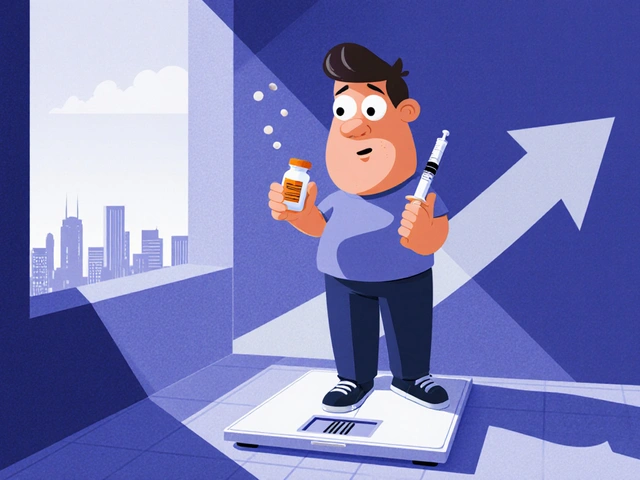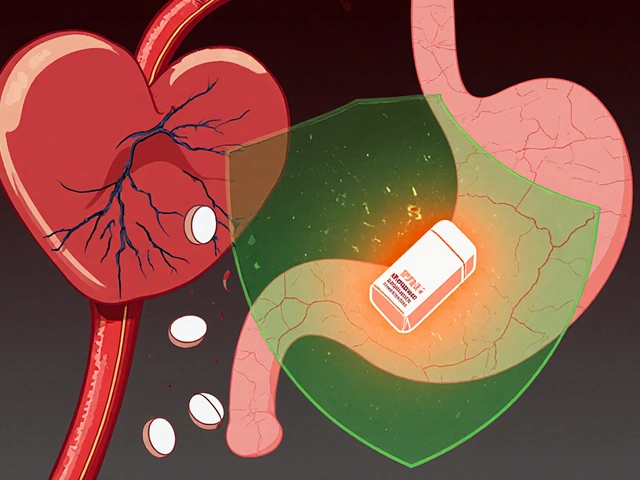
Waking up wet in the middle of the night is both annoying and stressful, no matter your age. If you think you're the only one dealing with it, here’s a reality check—millions of kids and even some adults face the same problem.
So, what can you actually do about it, starting tonight? For one, try to track what’s happening. When does the wetting happen, and are there any patterns with drinks or stressful days? This info makes a real difference if you ever talk to a doctor about it.
Another quick tip: keep bathroom trips part of the bedtime routine. Even teens or adults can get lazy, and making that last pit stop helps more than you’d expect. Waterproof mattress covers might sound like something only little kids use, but they save a lot of hassle for anyone facing this issue.
Don’t get stuck blaming yourself or your child. Most of the time, bed-wetting isn’t something you can just “try harder” to fix. The body is often just playing catch-up when it comes to how it produces urine at night, or it’s a simple habit that needs a nudge. There’s no shame, just better ways to handle it. We’ll cover them all—straight talk, no nonsense.
- Why Bed-Wetting Happens
- Common Myths and Misconceptions
- Practical At-Home Solutions
- When to Try Medical Devices and Medication
- Helping Kids and Teens Cope
- Talking to Your Doctor: What to Expect
Why Bed-Wetting Happens
It’s easy to think bed-wetting is just about drinking too much before bed, but there’s way more to it. For most, bed-wetting isn’t a willpower thing or a sign of laziness. It comes down to how your body works at night.
The main reason kids wet the bed is because their bladder is still developing. The brain and bladder need to work together to hold pee overnight and send "wake up!" signals if the bladder gets full. In some kids, this system is simply slower to mature. That’s why it’s common: about 15% of five-year-olds regularly wet the bed, and it drops to around 1% by age 15.
There’s also a genetic side. If one parent struggled with bed-wetting, their child has about a 40% chance of having it too. If both parents did, the odds can shoot up to 70%.
- Sleep patterns: Deep sleepers are more likely to wet the bed because they don’t wake up to the body’s signals. It isn’t bad sleeping—it’s just tough to wake up at the right time.
- Hormone levels: The body makes a hormone called ADH during sleep which cuts down urine production. If someone’s body doesn’t make enough ADH, they’ll make a lot more urine during the night and the bladder can’t hold it all.
- Constipation: This sounds out of left field, but if there’s a lot of poop in the bowel, it can press on the bladder, making accidents more likely overnight.
- Stress: Life changes like starting a new school, a new sibling, or tough family situations can trigger nighttime wetting. It’s not the cause for everyone, but it’s a real factor.
For teens and adults, some underlying medical conditions can lead to ongoing bed-wetting. Diabetes, sleep apnea, and urinary tract infections sometimes play a part. So, if this problem pops up suddenly after years of dry nights, that’s a good time to check in with a doctor.
| Age | Percent of Regular Bed-Wetters |
|---|---|
| 5 years | 15% |
| 10 years | 5% |
| 15 years | 1% |
Bottom line: bed-wetting is almost always tied to how the body and brain are working, not something you or your child can just will away. Figuring out what’s causing it can help you pick the best solution and get a dry night’s sleep.
Common Myths and Misconceptions
Bed-wetting gets talked about a lot, but most of what people say just isn’t true. These myths can actually make things worse, leaving people feeling blamed or embarrassed when they shouldn’t be. Time to clear up the noise around bed-wetting and see what’s really up.
First off, people love to say only little kids wet the bed. Not true. In fact, about 1 in 50 teens and even some adults still deal with it. It’s not just a “kid thing,” and it’s not something to feel ashamed about as you get older.
- Myth 1: Bed-wetting is caused by laziness or bad parenting. Nope—there’s decent research showing most kids or adults just feel bad about it. It’s not in their control, and yelling or scolding only makes the stress worse.
- Myth 2: Drinking less water stops nighttime accidents. Actually, staying hydrated can help. Dehydration just makes urine more concentrated, and that can irritate the bladder.
- Myth 3: Bed-wetting is always a sign of an emotional problem. Truth is, most of the time, it’s physical. The bladder or nerves just need to mature. Yes, stress can make it happen more, but it’s usually not the main reason.
- Myth 4: You just need to wait and kids will “grow out of it.” While most do, some need real solutions. Ignoring the issue doesn’t help anyone sleep better.
| Age Group | % Who Wet the Bed |
|---|---|
| 5 years | 15% |
| 10 years | 5% |
| Teens | 2% |
Another big one you’ll hear: if you just try “hard enough,” the problem will stop. That’s as useful as wishing your feet bigger so your shoes fit. Bed-wetting needs actual, practical solutions—not blame or wild ideas. Call out these myths when you hear them and stick to the facts.
Practical At-Home Solutions
When you’re trying to deal with bed-wetting at home, it’s usually the little things that have the biggest impact. You don’t need fancy gadgets right away. Most families see progress just by changing daily habits and routines.
First, pay attention to when and how much your child (or you, if you’re the one dealing with it) is drinking in the evening. Cutting back on big drinks an hour or two before bed seriously lowers the odds of waking up wet. Don’t skip fluids during the day though—just pay attention to nighttime habits.
Next, build a routine around going to the bathroom before lights out. It sounds obvious, but it’s often overlooked in the bedtime scramble. Sometimes an extra bathroom trip just before actually lying down helps even more.
You might want to try "double voiding"—peeing once as part of the normal routine, then again right before getting into bed. This makes sure the bladder is as empty as possible.
- Waterproof mattress covers are lifesavers. They stop mess from soaking through, so you aren’t constantly washing sheets and replacing mattresses. You can layer them up for extra peace of mind.
- Have a set of clean pajamas and sheets right by the bed. That way, if an accident does happen, it’s easy to change and get back to sleep fast—no wandering around half asleep hunting for supplies.
- Use nightlights to make bathroom trips in the dark less scary and way easier, especially for kids.
Bedwetting alarms are a big deal for older kids and teens who want more independence. These little devices sense moisture and beep or buzz to wake you up before a full accident happens. Studies have shown that 50% to 70% of kids improve with alarm training over a couple months.
| Solution | How It Helps |
|---|---|
| Waterproof cover | Protects mattress, lowers cleanup stress |
| Nighttime toilet trips | Empties bladder, lowers risk |
| Bedwetting alarm | Helps body learn to wake before accidents |
| Clothes/sheet prep | Makes night changes quick |
It’s also important to not punish or shame anyone for accidents. Positive reinforcement, like celebrating dry nights or giving simple rewards, works way better for building new habits. Make it a team effort—and remind everyone it’s nothing to be embarrassed about.

When to Try Medical Devices and Medication
If you’ve tried the basics—limiting evening drinks, sticking to a bathroom routine, using waterproof covers—but bed-wetting is still not going away, it might be time to look at what science and medicine have to offer. Plenty of folks wait too long before considering these options, thinking only little kids need help like this. Actually, medical solutions are for all ages when nothing else works.
Let’s start with bed-wetting alarms. These tiny gadgets sense moisture and set off a sound or vibration to wake the sleeper as soon as wetting starts. The idea is to train the brain to react to a full bladder. According to the National Institutes of Health, alarms help 50% to 70% of kids become dry after just a few weeks. But you’ll need patience and consistency—these things work best when used for at least two to three months, every single night.
- Bed-wetting alarms – The only non-medication solution with lots of research behind it. You can buy them online or at big pharmacies.
- Prescription medicine – Two main meds are used for bed-wetting: desmopressin (which reduces how much urine the body makes at night) and imipramine (an older antidepressant that sometimes helps). Your doctor will decide if these are a good fit.
- Other special devices – Rarely, a doctor might suggest a bladder stimulator or biofeedback if nothing else is working—these are usually for tough cases.
Kids and adults respond differently to medicine. Young kids usually try alarms before pills, while teens or adults can talk with their doctor about what’s safest and most effective for their lifestyle. Side effects are possible with any medication. For example, desmopressin can sometimes cause headaches or, rarely, water retention. Always use under a doctor’s supervision.
| Medical Option | Success Rate | Main Side Effects |
|---|---|---|
| Bed-wetting alarm | 50-70% | Sleep disruption |
| Desmopressin | 40-60% | Headache, water retention |
| Imipramine | 30-40% | Dry mouth, mood changes |
So, when should you talk to your doctor about these solutions? It’s a good idea if:
- You (or your child) are still bed-wetting after several months of consistent home solutions
- It causes major stress, shame, or stops you from having sleepovers or trips
- You notice other symptoms like pain, daytime leaks, or snoring
There’s no shame in getting a little medical help. These devices and medications can be a total game-changer, making sleep better for everyone in the house.
Helping Kids and Teens Cope
Bed-wetting is rough on kids and teens—plain and simple. The stress, embarrassment, and worry about sleepovers or camp trips are real. Experts agree that shaming or punishments never help, so let’s toss those out the window. Most of the time, bed-wetting isn’t something the kid can control.
If your child or teen is dealing with this, your support means everything. Talk openly about it, let them know it’s way more common than people think. Roughly 1 out of 10 seven-year-olds wet the bed at least once a month, so your kid isn’t alone. For teens, the number drops, but it still happens—doctors see it every week.
- Stick with a no-big-deal attitude. Kids pick up on your stress or shame fast.
- Use waterproof covers and extra sheets—it keeps clean-up quick and less awkward for everyone.
- Put clean pajamas within reach so late-night changes are easy and private.
- Let older kids have some control: keep supplies in their room and let them do sheet changes so they feel in charge.
- Keep those nighttime bathroom visits as a habit. Set a gentle alarm if your child or teen says they can't wake up on their own.
If anxiety or bullying show up, talk to your child about it and let teachers or coaches know if needed. Sometimes, just knowing a trusted adult has their back can take a load off their mind.
Encourage your child to drink the right amount during the day, but not overload on water or soda right before bed. You don’t have to cut them off from fun, just help them plan it out. Positive reinforcement is huge—cheer for dry nights, but don’t overdo it and don’t make wet nights a big deal.
If your child starts worrying or getting anxious about sleepovers, try practice runs at home. Lay out supplies, talk through what they could do, and let them know their friends probably won’t notice a thing, especially with new discreet bed-wetting products on the market.
Most kids outgrow bed-wetting, but offering steady, low-key support makes the difference while they do.
Talking to Your Doctor: What to Expect
So, you’ve tried home fixes and maybe even some over-the-counter products, but the bed-wetting keeps happening. This is when bringing in some professional help is a smart move. Doctors see this all the time, and they’re not going to make anyone feel embarrassed or weird. Actually, about 5 to 7 million kids in the U.S. still wet the bed at night. Adults deal with it, too—so you’re not alone.
Your doctor will want a clear rundown of what’s going on. Don’t just say, “it happens a lot”. Instead, jot down when it happens, any patterns you notice with food, drink, stress, or sickness, and whether there have been any changes lately—like starting a new school or job. Bring this info to your appointment; it saves guessing and back-and-forth questions.
Here’s what usually happens during a visit:
- History check: Doc will ask about family history, how often the bed-wetting is happening, and for how long. Don't get freaked out by the personal questions—they're just trying to help.
- Physical exam: They’ll check basic stuff like height, weight, and sometimes do a quick look at your tummy or back. It’s not painful, and there are no needles involved for most people.
- Urine test: Yep, the classic pee-in-a-cup moment. This helps spot infections or sugar issues (sometimes, uncontrolled diabetes can cause nighttime issues).
- Talking through daily routines: Be ready to chat about bedtime habits, water and caffeine intake, and bathroom schedules.
If the doctor thinks there’s something unusual going on—like infections, constipation, or stress—they’ll dig a little deeper. But most of the time, you get a plan that fits your lifestyle. Super common options include moisture alarms or short-term medicine for older kids and teens who need a break from wet nights (like for sleepovers or camp). For most people, just having a doctor explain what’s up brings a lot of relief and makes the bed-wetting way less mysterious.
Check out this quick breakdown of what you might discuss at the appointment:
| Topic | Why It Matters |
|---|---|
| Frequency of Bed-Wetting | Helps doctor spot patterns and rule out deeper problems. |
| Medical History | Family patterns mean it’s not just "bad habits." Genetics matter. |
| Urine Test | Easy way to catch infections or diabetes early. |
| Emotional Impact | Doctors can help with the stress, not just the physical stuff. |
The key thing to remember: doctors have seen it all before, and their goal is better sleep and less stress for everyone involved.
Noah Cokelaere
Well, who knew bed-wetting was such a hot topic? Honestly, I always thought this was just a ‘kid thing’ that magically disappeared with age. Seems like there’s a lot more nuance here, especially about how it affects adults too.
Love that the article addresses the myths because yeah, I’m sure there are plenty. I’m curious though, what are the most common myths that people still believe about this? Also, changing habits sounds straightforward, but I wonder what kind of habits exactly? Like, does cutting back on fluids before bed really do the trick?
It’s cool that it talks about the emotional side too — I imagine that’s the part most people don’t openly discuss. Bed-wetting must be embarrassing, so it’s good to know there are strategies and support.
Narayan Iyer
Hey, nice find! This article seems like it’s hitting all the important flags for an issue that’s not really mainstream convo, but really ought to be. For those tryna understand the underlying causes, it's important to remember stuff like bladder control issues, neurological factors, or even stress and anxiety can play a huge role.
And, yeah, that whole 'just drink less water' bit often misses the real complexity. There's a smorgasbord of products out there — moisture alarms, protective bedding, and medications. Though obv, you got to have that doc consultation first. I'm also wondering how cultural attitudes towards bed-wetting affect the willingness to seek help?
Also, has anyone here tried any of these products or treatments? Would love to hear some real-world feedback.
Amanda Jennings
Absolutely love that this post tackles the emotional side too. Too often, people just focus on the physical symptoms and forget how isolating it can be for both kids and adults. Growing up, I had a friend who dealt with this and it was so tough for him. Articles like this can really help normalize the experience and reduce stigma.
One thing I’ve learned in my work is that open communication with family and doctors makes a monumental difference. Plus, creating a supportive environment at home helps the emotional healing process as much as any medical intervention.
Looking forward to more tips on habit changes and products. I think a community vibe where people share what’s worked could be super empowering!
alex cristobal roque
Hey folks, just jumping in as someone who has spent a ton of time dealing with sleep-related physical health issues, including bed-wetting cases, so here’s my two cents. This problem is way more common than we talk about.
The trick isn’t just surface level changes like cutting back liquids at night, but really understanding the body’s signals and sometimes using alarm systems that train the brain to recognize bladder fullness. Of course, behavioral therapy can pair wonderfully with this.
And the emotional aspects? That’s where we often lose people. Support networks, counseling, even CBT can be critical. If you’re struggling, don’t let embarrassment keep you isolated; reach out.
Also, for adults dealing with this, remember that it could signal deeper health issues — so thorough medical evaluation is key.
Shweta Dandekar
Honestly, I think the real issue here is how society panders too much to convenience but completely ignores personal responsibility!!! I mean, bed-wetting? Surely, some discipline and firm parenting during childhood would prevent any adult from dealing with such issues!!!
And the overreliance on products and medications is just another example of how we try to cover up problems instead of confronting them head-on with determination and structure!!!
We need to stop coddling people and teach them the value of self-control and accountability from a young age. That’s the only way to truly eliminate this so-called problem!!!
Travis Evans
Alright, as someone who's coached a lot of folks through various personal challenges, including sleep-related issues, let me chime in here. The path to dry beds and restful nights isn't always linear—sometimes the journey is messy, frustrating, and full of setbacks.
That said, embracing the journey with patience and humor can be a game changer. Products and medical advice are awesome tools, but mindset and making incremental progress often steal the show.
I also can’t stress enough how much supportive conversation in your circle or with experts helps blast away the shadows of shame. You’re definitely not alone, and waking up to dry sheets is one hell of a motivator!
Antara Kumar
While I see the points made, it's clear that bed-wetting is sometimes glorified as just a trivial inconvenience or even a 'cute' issue for kids. I disagree. This could potentially reveal alarming genetic or environmental negligence, especially when adults suffer from this. People need to take charge of their health and their environment seriously!!!
Also, relying on gimmicky products rather than addressing root causes might just be masking bigger cultural and systemic failures in healthcare and personal discipline.
We need more strict awareness and accountability than mere boycotting of embarrassment.
John Barton
Oh, fantastic, another life-ruining condition with easy-fix myths and a whole industry of band-aids. I mean come on — bed-wetting, really? How many nights do you suppose it actually wrecks? Like, just wake up earlier, pee, problem solved, right?
Look, I'm all for empathy, but sometimes I think we make a mountain out of a molehill. If someone's still wetting the bed as an adult — maybe life's telling you that you need to sort out your priorities or sleep schedule? Or better yet, just accept your soggy fate and carry on, no?
Anyway, rant over. Carry on with your alarms and sheets and whatnot.
Achint Patel
From a philosophical perspective, bed-wetting can be looked upon as a profound symbol of human vulnerability and the limits of bodily control that everyone faces. This article, while practical, barely scratches the surface of the existential implications.
The medicalization and productization of what some consider a stage of human development raise questions on how society deals with imperfection and dependency. Is the quest to sleep through the night dry a metaphor for broader attempts to master chaos in life?
Worth pondering whether embracing the condition, rather than simply 'fixing' it, could inspire deeper empathy and understanding in a culture obsessed with control and cleanliness.
Duke Gavrilovic
This is a really well-rounded article that doesn’t just treat bed-wetting as a mere inconvenience but looks at its impact on mental well-being too. It’s rare to see such a balanced perspective that includes behavioral advice, product info, and encouragement to seek medical intervention when needed.
It acknowledges the cultural stigma and emotional isolation that often accompany this issue, which is an important step toward destigmatizing it. Very informative and compassionate approach overall.
Louie Hadley
I gotta say, it’s refreshing to see such an honest and empathetic article on bed-wetting. It tends to get brushed under the rug, but this breaks down barriers and offers practical guidance.
Especially love the focus on involving doctors and using a mix of habit changes alongside products. Balancing medical and emotional support is crucial.
That said, does anyone know how effective these moisture alarms really are? I’m curious if they work better for kids or adults.






Write a comment